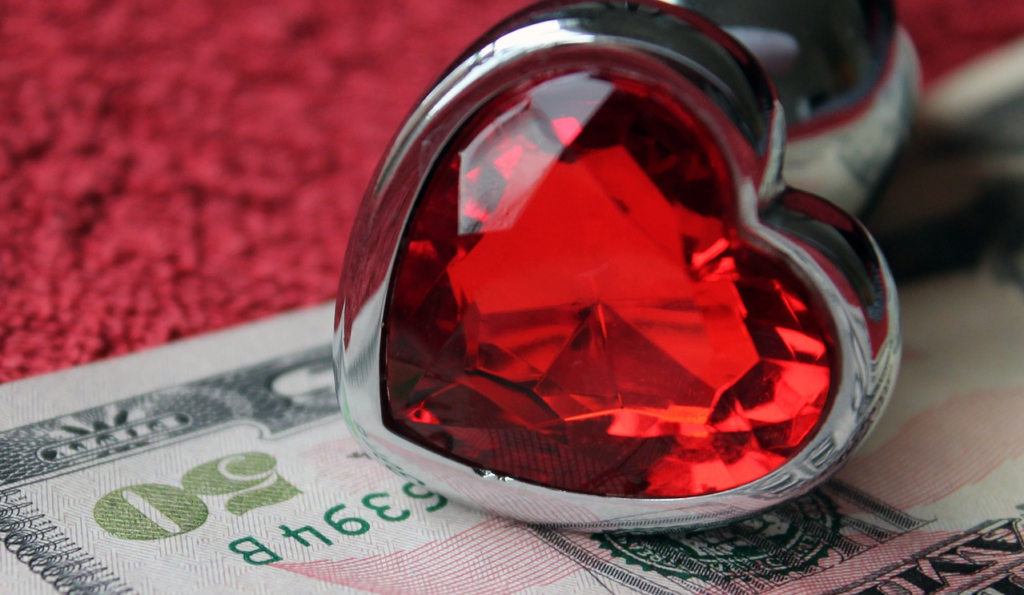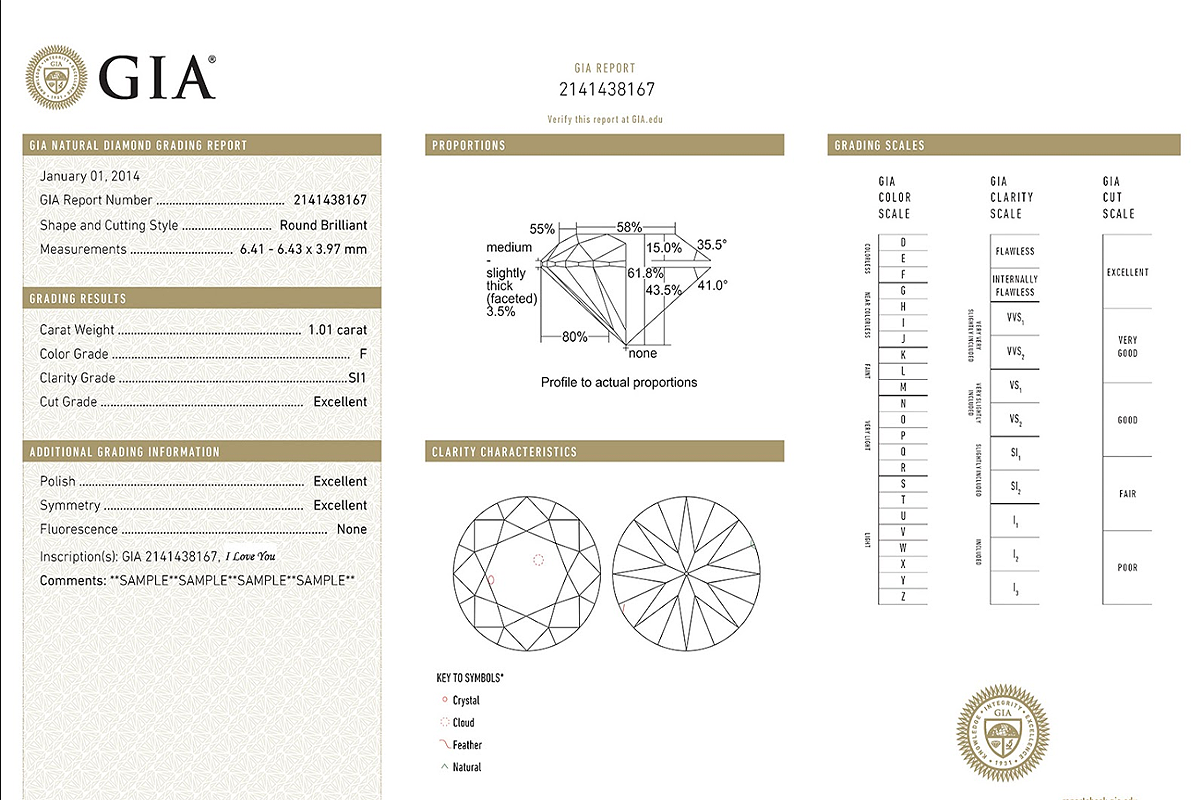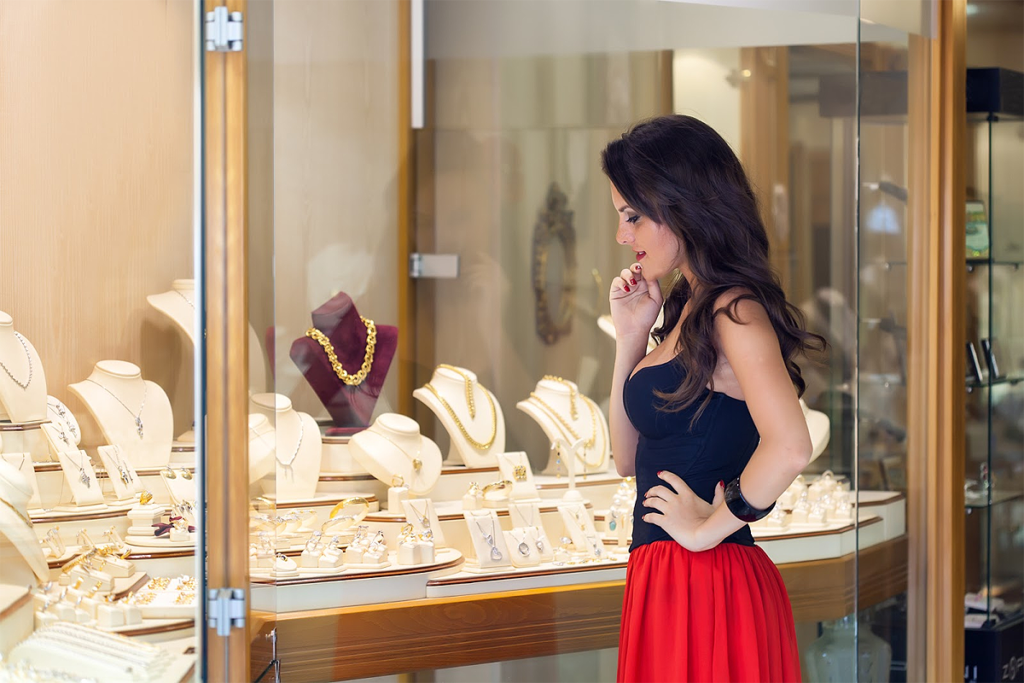You, the modern woman, are a picture of growing power and independence. You can see it in your decisions, such as buying your own home and going on a vacation. You don’t need others to decide for you. The same thing goes when you are buying jewelry for yourself.
Can a woman buy herself a ring? Absolutely. More women are buying their jewelry pieces, including rings, as opposed to having those items gifted to them. Millennial women are driving this trend, with more than half of them declaring themselves as the primary buyer of jewelry in their households. Rings remain the most popular jewelry item, accounting for over a quarter of the industry’s market share in 2018.
Right now, you may be asking yourself, “Can I buy a ring for myself?” Of course, you can. This post will give you an idea on how to buy jewelry. It will also answer the question, “what should I look for when buying jewelry?” and help you determine if what you buy is of good quality.
Why You Should Buy Jewelry for Yourself
“Okay, I can buy a ring for myself, but should I?” Buying your own jewelry indicates independence and self-sufficiency. Consider it as a reward for all your hard work. Don’t feel guilty; you deserve to give yourself some love at the end of the day.
You don’t need to be told how valuable you are. Don’t wait for some other person to show you your worth. And you are going to enjoy your coveted piece for a long time. Buying jewelry for yourself can be an empowering experience. You can choose any design you want, having a better grasp of your style than any other person. That means you are in a better position to find out what you need.
Choose According to Style
First, though, you have to know your style as well as your lifestyle. Your choice of jewelry will have to fit in with the style you have. You might want to ask yourself a few questions: what kind of work do you do? How do you dress up for work? How do you spend your time after work or your weekends? Do you prefer a classy, more feminine style or something more minimalist, or sporty?
You have to take these things in mind because you will want your chosen jewelry to always look good with what you wear. This is true whether you plan to use them every day or only on rare occasions. You will also want your pieces to last long and not break down from wear and tear.
If you want to buy something you can wear daily, you can start with things such as a diamond ring, a designer pendant set, or a simple gold necklace. However, if you want to amaze yourself and your friends at a party, you may opt for something like a cocktail ring with a large and colorful gemstone.
Diamond pieces are well suited to those who want to wear jewelry every day because of their durability. Diamonds can better withstand everyday activity than other gemstones. Lower-karat gold, ranging from 10 to 14 karats, is better for pieces that you’re likely to use daily. Higher-karat gold, which ranges from 18 to 24 karats, is more suitable for items that are used only during special occasions and ceremonial events.
Your health could also be a factor in selecting what kind of jewelry to buy. High body acid content can cause your gold jewelry to turn black. In this case, your jewelry can appear to be of lower quality when it actually isn’t. Some of you may also be allergic to metals used in alloys, such as nickel. Consider platinum, which is hypoallergenic, or higher-purity gold jewelry when you have such a condition.
Your lifestyle choices could also play a role. If you are one of those minimalist types, then you would probably want your jewelry to be as simple as possible. It also helps you save money, by the way.
Set a Budget

Set aside money when you are buying jewelry for yourself. It’s important to stick to your planned budget. Avoid emotions from taking over your purchase process. Don’t fall in love with a certain product that is bound to break the bank. It will be hard for you to prevent overspending once that happens.
If you’re on a tight budget, consider buying more basic pieces such as gold pieces without gemstones. This is ideal when you’re just starting to build your jewelry wardrobe. You may also choose lesser-known gemstones or freshwater pearls to save money.
A good option is to determine how much your chosen piece of jewelry costs and save for it. You can do this by setting aside money every month. Doing so can help you resist the urge to overspend on a particular article. This strategy can also be more rewarding for you in the long run.
Another way of saving money is by avoiding brand-name emporiums. These stores do offer beautiful and expensive pieces but build additional costs into their prices. These include high rents for their stores, marketing costs such as advertising campaigns and red-carpet events, and the price of the brand name. Smaller stores don’t incur these expenses and can offer you a better value on high-quality jewelry.
Comparison shopping can also help you cut costs. An item that is sold at an independent outlet can be found at another one for a lower price. Always scout for other stores and compare prices of the same product.
Choose Good Quality Jewelry

As with other products, you’d want to make sure that your hard-earned money goes into something that is of high quality. Now, how can you tell if the jewelry you buy is of good quality? The short answer is, you will have to do some homework.
You can start by choosing a jeweler who has gemological education and jewelry manufacturing training, aside from their practical experience. The Gemological Institute of America (GIA), for example, can help you find a jeweler in your area who carries GIA-graded diamonds or whose staff include GIA-trained professionals.
You should educate yourself about the kind of jewelry you want to buy. If you have the time, learn how to use the jeweler’s loupe, a small magnifier for seeing gemstones in greater detail. For diamonds, you will have to learn how to evaluate the four Cs (cut, color, clarity, and carat weight).
Look for the maker’s mark and the quality stamp on the jewelry piece. In places such as the US, these marks are required by law. The maker’s mark is proof of authenticity, similar to an artist’s signature on a painting. The quality stamp indicates the type and fineness of the metal. European products carry hallmarks that provide information on the type of metal, fineness, and the country of origin. These marks are often found in inconspicuous places, such as the inside of a ring’s shank or the back of an earring.
Check the pieces for any damage or defects. Loose gems are not secure in their mounting and could fall out. Viewing the item through the jeweler’s loupe can help you find chips or abraded facets. Make sure that the metal doesn’t have scratches, regardless of finish.
It’s a good idea to learn about task-specific benchmarks to better judge the pieces you’re looking to buy. The techniques used to create pieces of jewelry affect their beauty and durability. Loose, damaged, or lost gems can be attributed to poor workmanship and the lack of benchmarking standards for setting. Such benchmarks ensure that the gemstone is unblemished and secured in its place.
Ask Your Jeweler
Asking your jeweler can help you learn more about jewelry. Don’t hesitate to ask questions about the piece you’re about to buy. You may want to bring along an expert or a well-trained friend to act as your backup or to provide a second opinion. Remember, informed customers are empowered, customers.
So, what to ask for when buying jewelry? First, you should seek to know the origin of the jewel. You should also inquire about the treatments done to the gemstone. The stone’s quality is hard to evaluate with the naked eye alone.
You should ask to see the jewelry’s laboratory report, especially if what you’re buying has significant gemstones. The GIA provides reports on gradings or gemological identification. These indicate whether a stone is natural or synthetic or has undergone treatments. These also assess the stone’s quality or identify what the material is and where it came from. The GIA’s certifications are the most reputable in the industry.

Make sure that the certification papers provided by your jeweler are current. Documents that are two years old are acceptable. Old documents, such as those from 10 years ago, are not.
Consider obtaining an appraisal if you’re buying an antique jewelry piece or an expensive one. The appraisal tells you about the item’s replacement value. This is particularly important for insurance purposes, especially if you treat your jewelry as a form of investment.
You should also know about the warranty or return policy of the item you want to buy. Many stores offer annual checks for loose or damaged gems, as well as cleaning. Sometimes these stores even offer service plans that include free replacement of lost or damaged gems, or free repairs in case of damage to the metal. This is similar to the maintenance checks on your cars.
It’s a good idea to ask for unbiased advice. It makes sense to ask for help with buying jewelry from people who earn a living by making them. The best sources of information are smaller shops, online, or from jewelers, you aren’t buying from. Let experts help you with your buying decision. Don’t let your jewelry seller shape it.
Make sure you have a written receipt for your purchase. A sales receipt or an appraisal of the gemstone’s quality is considered a contract. The receipt also indicates the kind of metal used as well as its purity. This can be your only means of proving what you have been told.
Post-Purchase
After buying your jewelry, you should take care of them properly. Store them in individual boxes or pouches to avoid damage. Remove jewelry before activities, such as bathing, swimming, and household chores. Clean them with mild soap and warm water to help your stones keep their shine. Ask your jeweler for more information on how to clean your pieces.
And we’re about done here. Hopefully, this guide has given you an idea of how to buy jewelry for yourself and equipped you for that first purchase. Always bear in mind that buying jewelry for yourself requires a good deal of consumer education. You will need the right information, and we all know that knowledge is power. This ensures that you get more value for your hard-earned money. It also allows you to reap the fruits of your labor for a long time.
